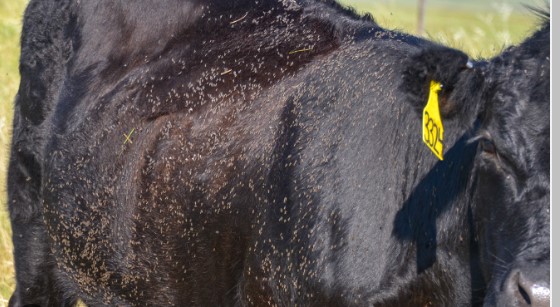
“Flies are a disease-carrying menace in homes and all-around barnyards.”
Doesn’t matter whether at the desk, in a soft chair, or ready for supper, a fly always becomes a pest.
It’ll land on the hand or face agitating until the flyswatter comes out and then won’t stay still. Eventually a direct swat will stop that irritation, but soon another fly shows up out of nowhere.
There are different philosophies about controlling the flying bugs but the swatter is really the safest. Various fly traps and tapes are installed in some homes and do help keep numbers down.
Fly spray is an option for control but it can be very hazardous. Often, people don’t consider that anything to kill something must be poison.
If the sprays destroy flies, the chemicals are also dangerous to people and the environment.
Volumes of flies are pestering all livestock around the ranch. It is common to see cattle almost completely covered with the little black pests.
Again, there are different opinions about the best way to control livestock flies. Fly traps do help in the barnyard, and some ranchers put insecticide-filled backrubs where livestock frequent to reduce the problem.
Others apply a pour-on insecticide that is supposed to work for a longer time on pastured livestock.
Certain livestock minerals have insecticide in the ingredients which is claimed to be a continual fly deterrent.
Perhaps not done so much as in earlier years, regular spraying of herds with insecticide reduces fly populations.
Usually not considered by the stockmen worrying about the fly problem is that they are applying poison to their livestock.
It may reduce fly populations somewhat temporarily, but the poison must be dangerous. It is harmful to the handler, all animals, birds, plants, water, and the entire environment.
Anything that’s sole purpose is to kill is unsafe for widespread use.
Flies are especially attracted to certain horses, so most handlers are eager to apply insecticide. This is often done with bare hands taking no precautions for personal dangers.
Leg wraps can be used on horse legs to reduce fly irritation which can lead to bleeding in extreme cases. Face masks reduce fly problems which are frequent issues around the horse’s ears, eyes, and nose.
Reminded of Exodus 8:31: “Moses said l got rid of the flies so there wasn’t a fly left.”
+++ALLELUIA+++




